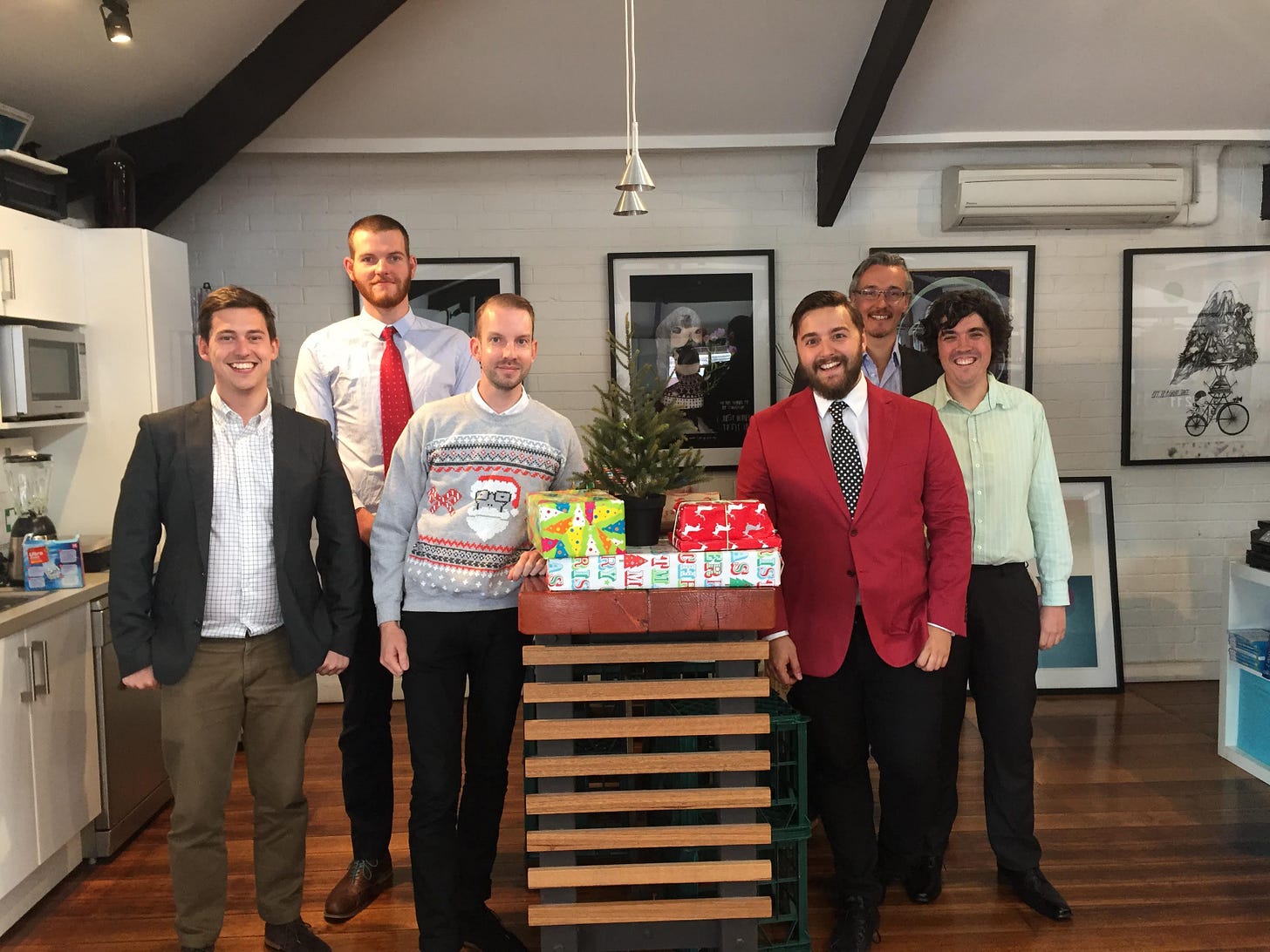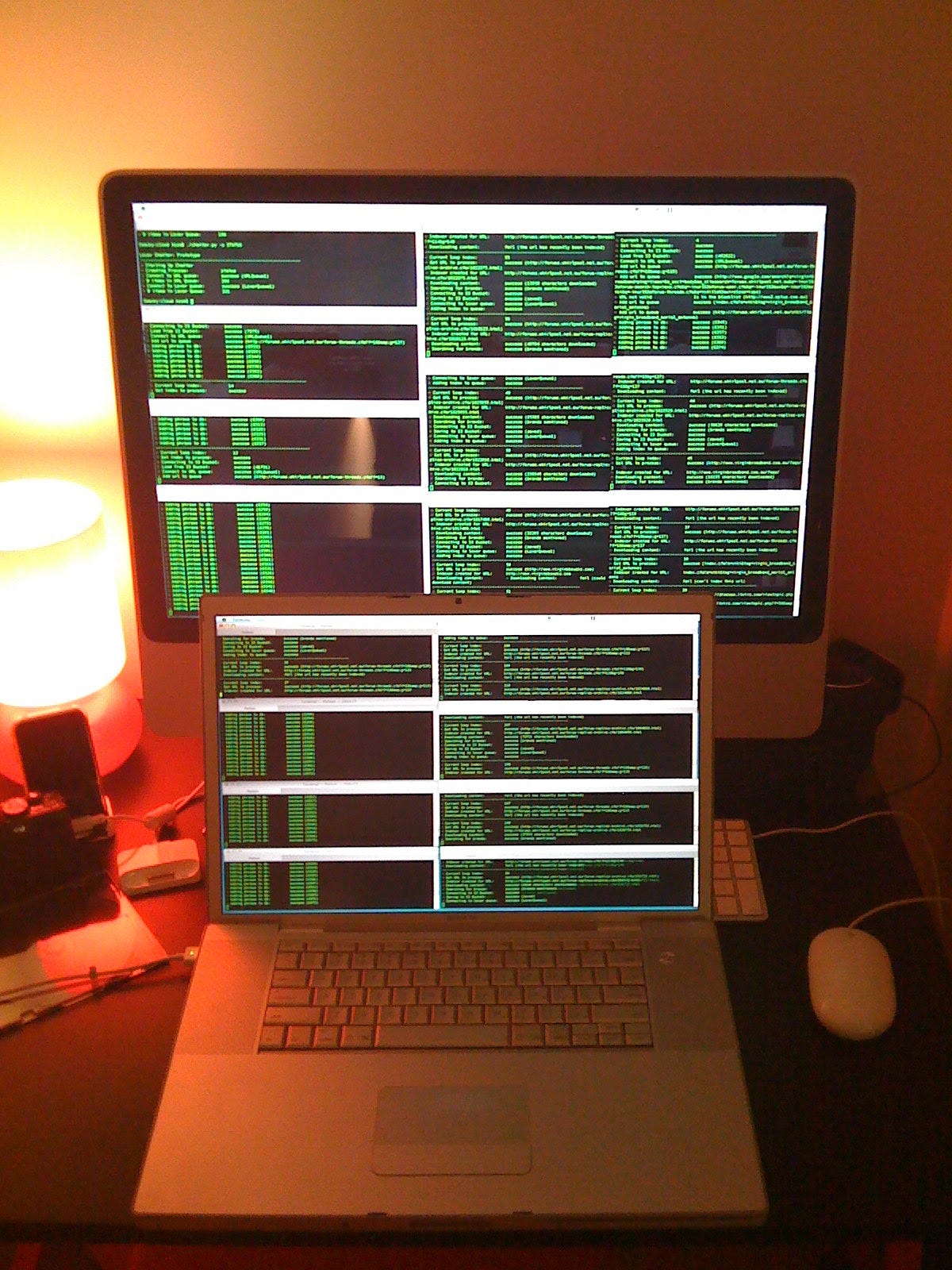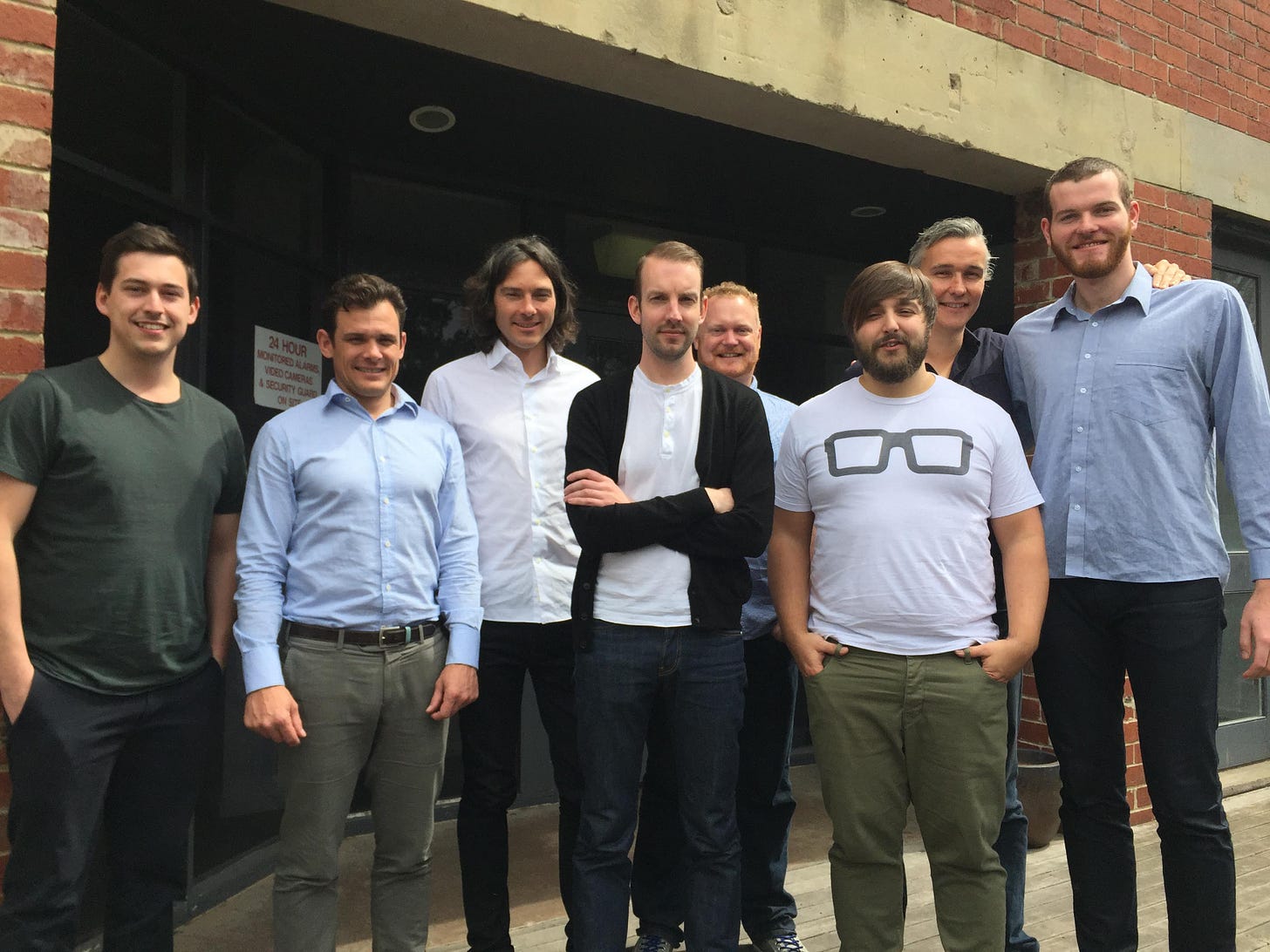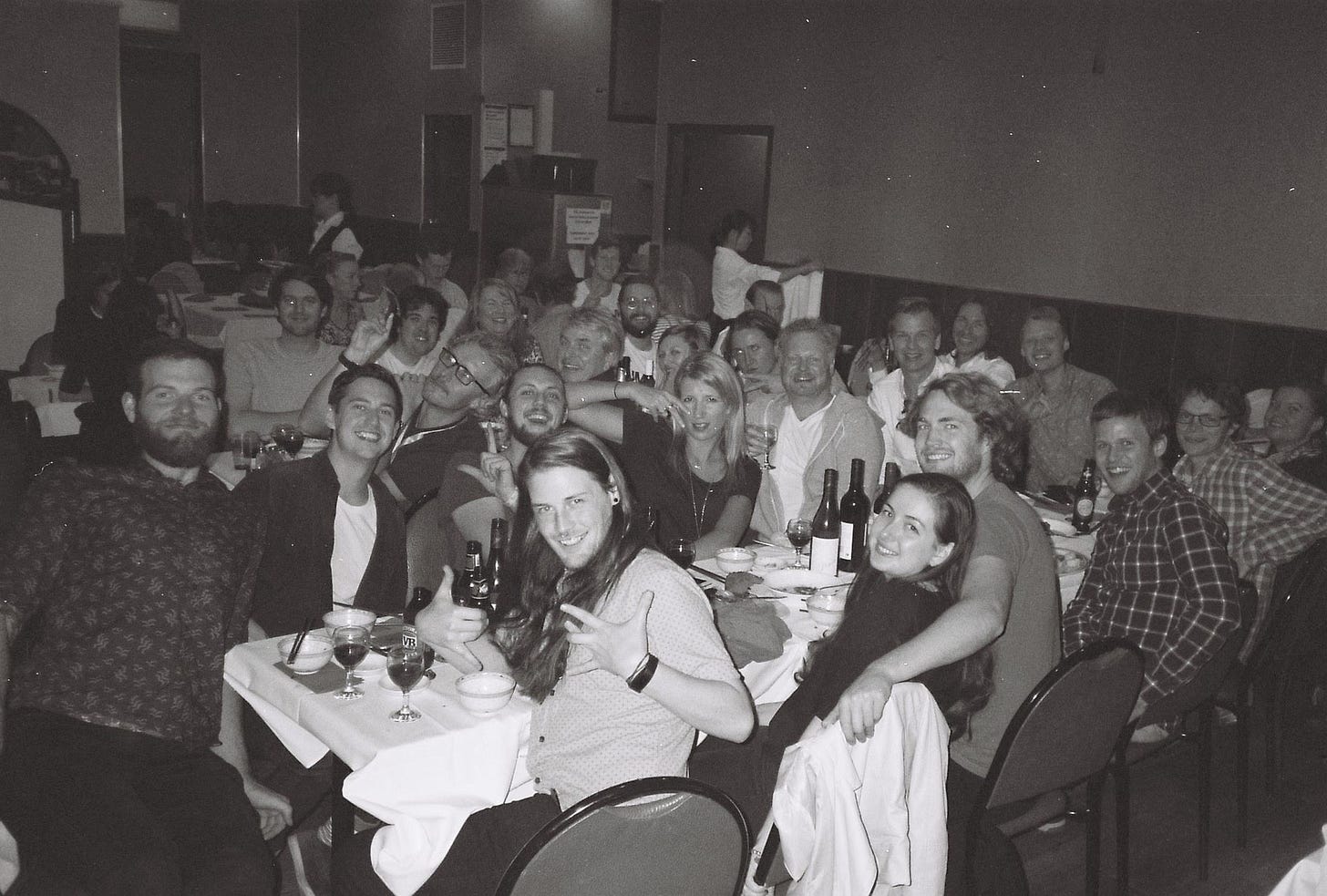GDPR Took Half Their Revenue But Made Them Stronger: The Lexer Story
How Aaron Wallis started his SaaS platform from his bedroom and survived GDPR killing half his revenue to go global.
👋 Welcome to Valley of Doubt, a free weekly newsletter that goes deep into founder stories from the early days of startups. 🚀
Aaron Wallis is the former co-founder and CTO of Lexer, a Melbourne based Customer Data and Experience Platform (CDXP) that has raised over $35m in venture capital. But it didn’t start out life as a CDXP!
In this interview we cover off:
Spinning his first product out of an agency
Having to move back home with Mum and Dad to keep the lights on
Raising a Series A, only to have GDPR kill 50% of the revenue
The crucial pivots that Lexer went through to still be thriving today
Making the decision to move on
Scott Handsaker (SH): Aaron, tell me who you are in 30 seconds or less.
Aaron Wallis AW): I'm doing a fractional CTO role at the moment, and someone in the team posted on Microsoft Teams, "Hey, let's play a little game. Explain what you do, but in the worst way possible”. After chatting with my favourite AI, I landed on this:
I help people not hate computers and help computers not hate people.
A lot of my career has been spent being a really creative person in technical teams or a really technical person in creative teams. That middle ground is what sparks me the most joy.
The Genesis: From Agency Life to Social Media Scraping
SH: Take me back to the founding days of Lexer.
AW: I was working as technical director at M&C Saatchi. Dave Whittle, who became a co-founder, was my boss there. We actually met at the very first Twitter meetup in Australia! There was this tall man dressed head to toe in Dolce Gabbana among all these nerds, so I went to chat with him. A month later I was working for him.
At the agency, I'd see account managers and strategy people browsing MySpace and Twitter, looking for mentions of clients or competitors. They were spending hours taking screenshots of tweets and putting them into PowerPoint presentations as "quantified research." I thought, this can be so much easier.
This was 2008. I built this really rudimentary social media monitoring platform running on my iMac at home, scraping Twitter and major Australian news publications, dumping data into a Postgres database so we could search and see it all at once. Cloud computing had just landed. Amazon had launched maybe a couple months earlier, so I could deploy this in the cloud.
SH: How did it become a business?
AW: Dave was encouraging me every step of the way and we started selling it to agency clients. I was 23 at the time, so I was leaning on Dave for help with the commercials. Westfield was our first paying customer, and they said if we built it for them in the next six months, they'd pay a subscription fee. We had revenue really early on, probably about six clients total. At this stage it was still a business unit of M&C Saatchi.
About 12 months into it, the agency decided it didn't want to invest anymore. The CFO pulled me aside and said,
"You need to let go of the entire team. Stop what you're doing. Go back to your old job."
I had no idea that conversation was coming, but Dave was great. He said, "Let's find some high net worth individuals and get capital. You should keep doing this."
So we got a few angels and everyone put in cash. I think I contributed sweat equity. In total we raised around $200k and at the same time we acquired the IP back off M&C.
I moved back home with mom and dad and my partner Corey came with me. We lived at home for almost a year, then decided to move to Melbourne instead of back to Sydney.
The Solo Founder Years and Board Meetings from Hell
SH: When did co-founders come into the picture?
AW: I was solo for about two years. I became a company of one with a board of five. I'd wake up every morning asking myself: Am I selling? Am I working on marketing? Am I improving the product? I'm a product guy, so it almost definitely meant I was spending time on the product.
We had these Monday morning calls (I called them board meetings) where everyone dialed in and basically took turns asking me why I hadn't done that thing yet.
I got to the point where I was like, "I think I need to give up on this." I spoke to Dave and said something needs to happen. The board got fractured, and two investors wanted to take the business one way, and two wanted another way. They said "Aaron, you need to make a choice!"
I made the decision to continue working with Dave and an angel turned co-founder Chris Brewer. We all put our hands in our pockets, bought out the other angel investors and cleared up the cap table. That's when Chris and Dave started working part-time in the business. Over time it evolved into both of them going full-time.
I was passionate about being the CEO for the first few years, but once Dave and Chris came on board it was clear I was going to be CTO. It wasn't until we started raising capital that I realised that I really don't like the job of a CEO. I kept leaving all of these VC meetings thinking, I would much rather be at home working on the product than hearing these people tell us how bad our idea is!
Brought to you by Murmar.
Finding Product-Market Fit and the First Big Raise
AW: We had this social media monitoring product called Lexer Listen. We had built that up to a decent ARR with Australian enterprise organizations, but we kept hearing about problems where the content needed more context.
Westfield would freak out when there were negative sentiment spikes, which was almost always people complaining about toilets. But we didn't know if it was someone shopping at Louis Vuitton complaining, or people using the train station at the basement. Completely different reaction required.
That led us to explore how to get more data. This was pre-GDPR, so if you had an email address, you could hit an API and get their Twitter handle, Instagram, and Facebook. We started building this rich identity graph, creating behavioural profiles. As an example, we would know that “Aaron Wallis follows Nike and Adidas, is into electronic music, and lives in Melbourne”. All based on geolocated tweets.
We would harvest huge amounts of social content and use that to infer behavioral profiles. We went from social monitoring to social enrichment, licensing behavioral data to companies. That's when we did our Series A.
SH: Do you remember how much you raised and at what level the business was?
AW: I think we were doing about four million ARR when we raised five million from Blue Sky Ventures, now January Capital.
The GDPR Crisis: Losing Half Your Revenue Overnight
SH: Can you walk me through what you think was the biggest crisis in Lexer's history?
AW: About 12 months after our Series A, GDPR kicked in and made our social enrichment essentially illegal. We'd basically built what Cambridge Analytica had built. We were using it for good, but the market decided this shouldn't be allowed.
We had to notify all clients using social enrichment, and it was a significant portion of our revenue. We decided we had to turn it off.
SH: Did it feel existential at the time?
AW: Maybe not to me because I'm happiest when I've been given a direction and have free reign to build something new. And that is what it felt like to me.
Dave Chin, who's now our CEO, was the one who came up with the pivot.
"We've got this data platform dealing with incredibly complex, unstructured data. Why don't we point all this technology at data INSIDE organisations instead of outside?"
We started talking with clients about transaction histories, call center logs, creating profiles of what Aaron Wallis is doing INSIDE the business. We didn't know it yet, but we'd essentially built one of the first customer data platforms.
We probably went from the low point of GDPR crushing our revenue, to having Optus as one of our first clients on the new platform in about three months. It didn't feel like we were saving the business. It felt like we were doing something incredible and new.

The COVID Rocket Ship
AW: We entered COVID with a strong business and a war chest thanks to Chris's financial management. But we were terrified because retail was dead, and the new Lexer product specialized in retail data analytics. But the team did an incredible job repackaging what we did for the market.
We grew like a weed, with 100% year-on-year growth for almost two years. We raised about $25 million led by Blackbird during COVID, when the VC market was hot and money was cheap. That brought total investment to about $35 million.
My only KPI at that point was to hire a new developer every week for two years. The plan was to burn bright and do another capital raise in 18 months time, but then the world changed again and we just couldn't.
Almost instantly, the next board meeting was "Why the hell are you still hiring? You need to get rid of people." That's when the tech, VC, and retail bubble all exploded at once.
We were born during the first GFC and survived that. We survived GDPR which should have killed us, as it torched about half our revenue. We then turned COVID into a positive and even today we continue to survive and thrive.
As founders, you always look back and think "what would you do differently?" There's so much we would do differently, but there's not many regrets because we took the best decision with the information we had at the time.
Hard Lessons on Sales and Delegation
AW: I remember trying for so long to sell to Qantas because I knew they didn't have a platform and their CEO was bullish on Australian technology. I just couldn't get any traction doing cold sales, as it's not my natural place.
When Dave suggested working a couple days in the business, he asked "Who are your prospects?" I said I'd been trying to get in front of Qantas for months. He grabs his phone: "Yeah Paul, it's Dave. I've just joined this new startup. Yeah, cool. I can come in the office on Monday."
I went through this whole gamut of emotions in 30 seconds. First devastated at how easy it was for Dave to get into Qantas with one phone call, and feeling inferior about the hours I'd wasted. But then, I realised how awesome it was to have this person on my side. Literally two months later, Qantas was a client.
I still question myself today. Am I delegating enough? Is it ego? There's definitely things I probably should have let go of a long time ago, things I do today that I should get someone who's way more passionate about it or better at it.
The Personal Cost and Eventual Exit
SH: What did this startup cost you personally that you didn't expect?
AW: I started Lexer when I was 23. I poured all of myself into the business, which meant I deprioritised travel, exploration, and personal relationships. When I moved to Melbourne, I locked myself away and worked. By the time I felt like I could come out and smell the roses, I realised I didn't have anyone around me to hang with!
Making new friends as an adult is hard. I realised the people I spent time with were exclusively tech and startup people.
SH: Why aren't you at Lexer anymore?
AW: About two to three years ago, I realised my role didn't spark the creativity I needed. I can't expect the business to change to satisfy that. I started a menswear label as a side thing, but realised I can't just do something on Sunday that makes Monday through Friday feel good.
I found myself pretty unhappy at the start of this year. My partner Corey called it out, as I was clearly not in a good place. After a series of challenging quarters, we had a leadership offsite where I found myself telling them why every idea wouldn't work.
I got home absolutely miserable at the attitude I brought. I called my business partners that Saturday: "I have to go." My rationale was I'm doing more damage in the business than out. I'm a glass ceiling for talented people who need room to grow.
I still remain involved. I'm on the board, a major shareholder, work a couple days a week. But I enjoy having distance and the opportunity to do something different.
Rapid Fire: Books, Music, and Podcasts
SH: What's a book we should all read?
AW: The Hard Thing About Hard Things by Ben Horowitz. It's like my Bible. Great combination of stories from the golden era, like inventing SSL over a weekend to close a deal! It made me feel very sane about the frustrations and stresses I was feeling.
SH: What's a band or artist we should listen to?
AW: I came across a Melbourne EDM artist today called Ninajirachi. She just released an album called "I Love My Computer". All the songs have a nostalgic computer vibe, but it's pretty intense. Definitely not for everyone, but worth checking out.
SH: What's a podcast we should listen to?
AW: The Colin and Samir Show. They interviewed Mustafa, the CEO of Microsoft Copilot. The conversation went down the road of societal impact of AI and how it's going to change our lives. Mustafa is a philosophy major, so hearing that from someone clearly passionate about positive social impact as a philosopher was really compelling.
SH: Thanks for your time Aaron, and good luck with your next venture!






